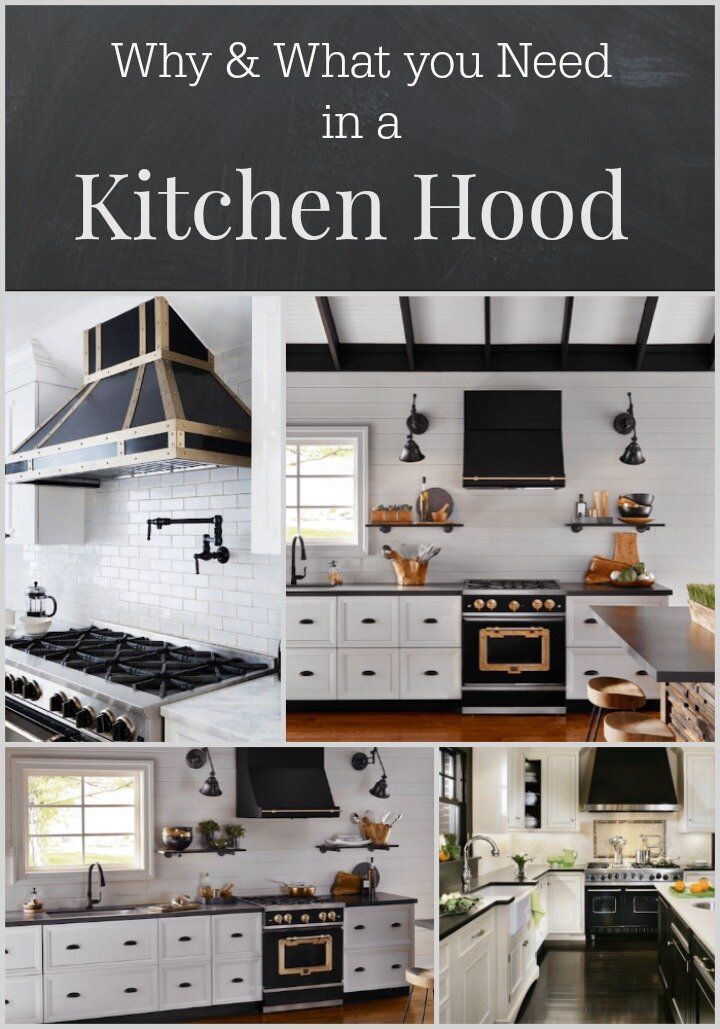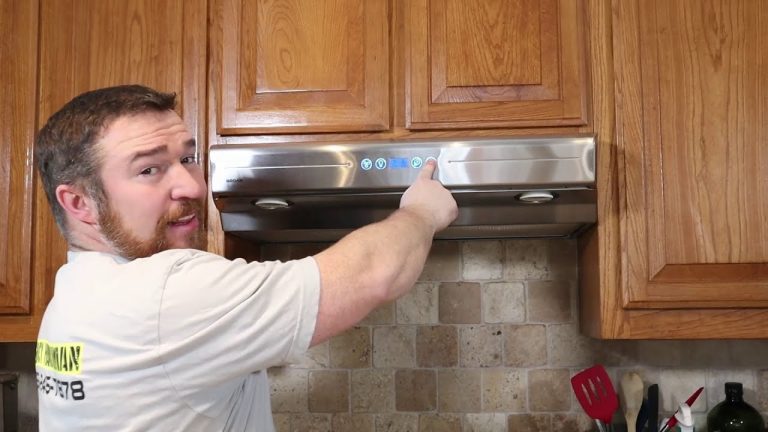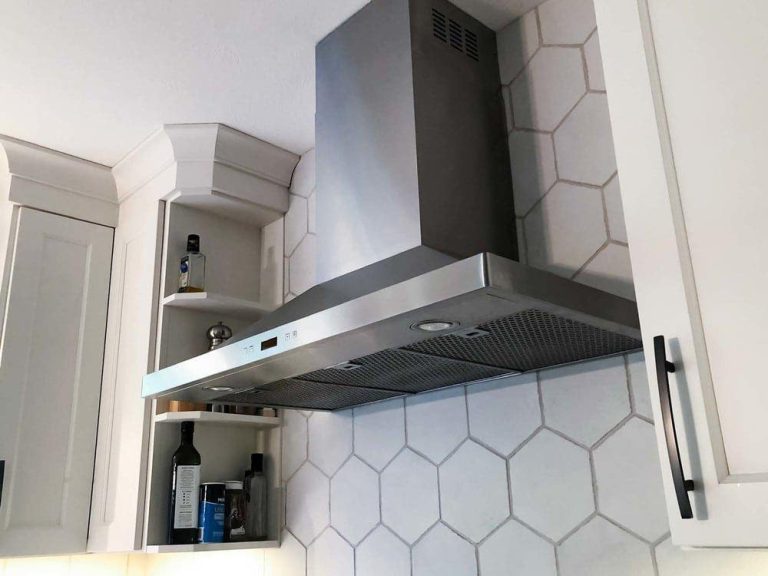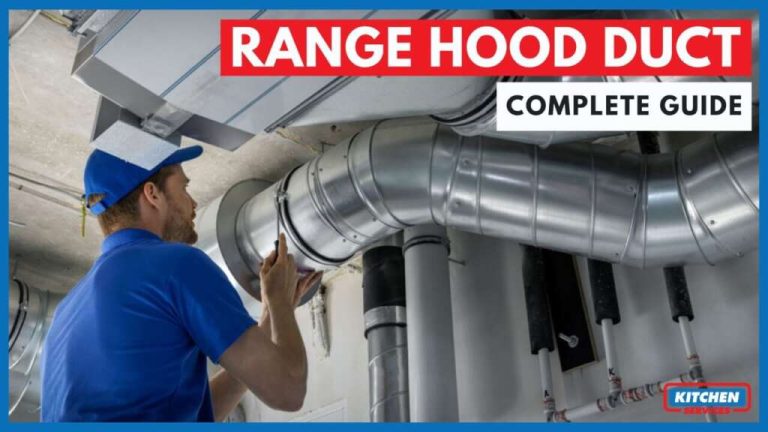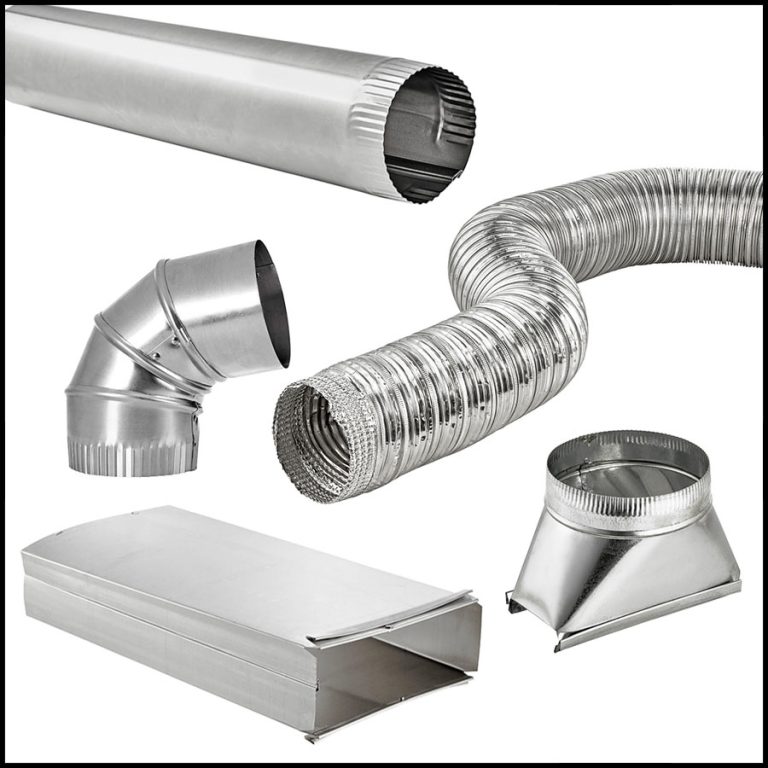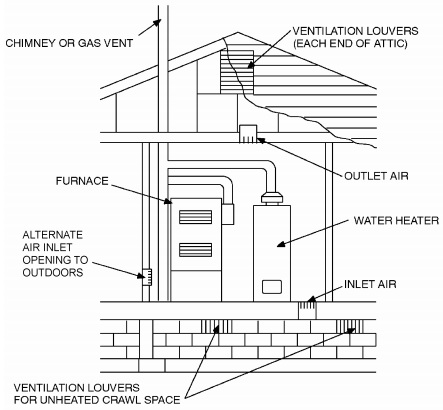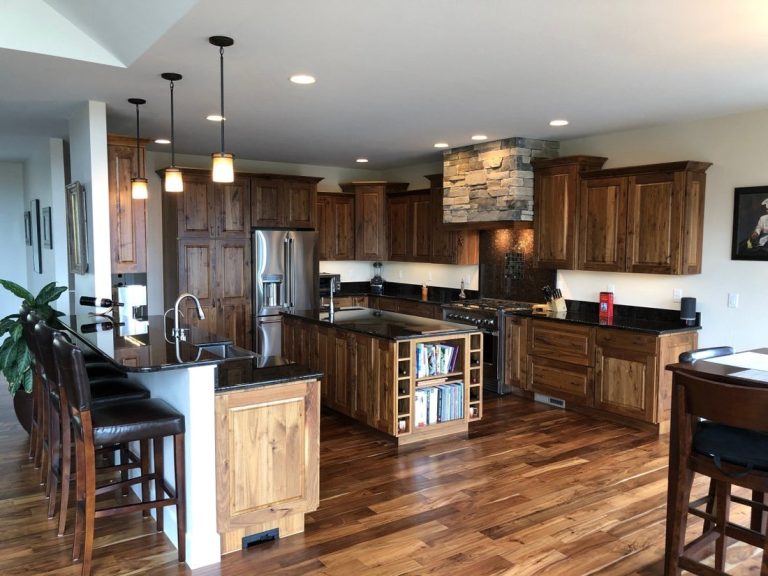A range hood is not legally required in all kitchens, but it is highly recommended. It improves air quality and reduces odors while cooking.
A range hood serves as an essential kitchen appliance for many homeowners. Cooking generates smoke, steam, and odors that can linger in your home. A range hood effectively eliminates these unwanted particles, ensuring a cleaner and healthier cooking environment. Furthermore, it helps prevent grease buildup on surfaces, which can lead to fire hazards.
While some jurisdictions may not mandate their installation, the benefits of having a range hood are clear. From improving ventilation to enhancing your kitchen’s aesthetics, investing in a range hood can elevate your cooking experience and maintain your home’s air quality. Understanding its importance can guide you in making the right choice for your kitchen.
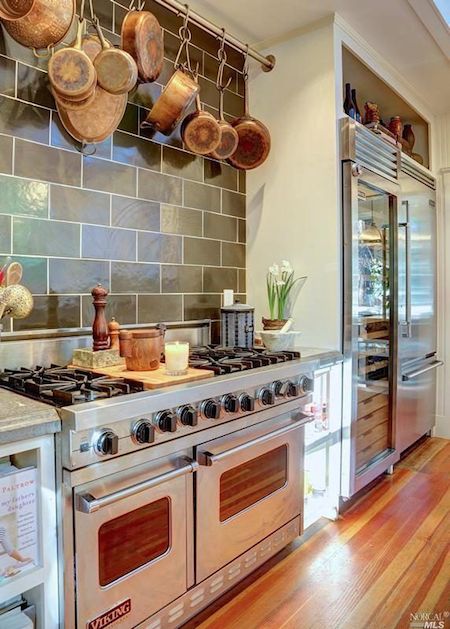
Credit: victoriaelizabethbarnes.com
The Role Of Range Hoods In Kitchens
Range hoods play a vital role in maintaining good air quality in kitchens. They help remove smoke, steam, and cooking odors. Without a range hood, cooking smells linger longer in the home.
Effective ventilation is essential for a healthy cooking environment. Range hoods filter out harmful particles. They can also reduce heat buildup in the kitchen.
Controlling cooking odors enhances the overall cooking experience. A good range hood captures and eliminates unwanted smells. This keeps the kitchen fresh and inviting.
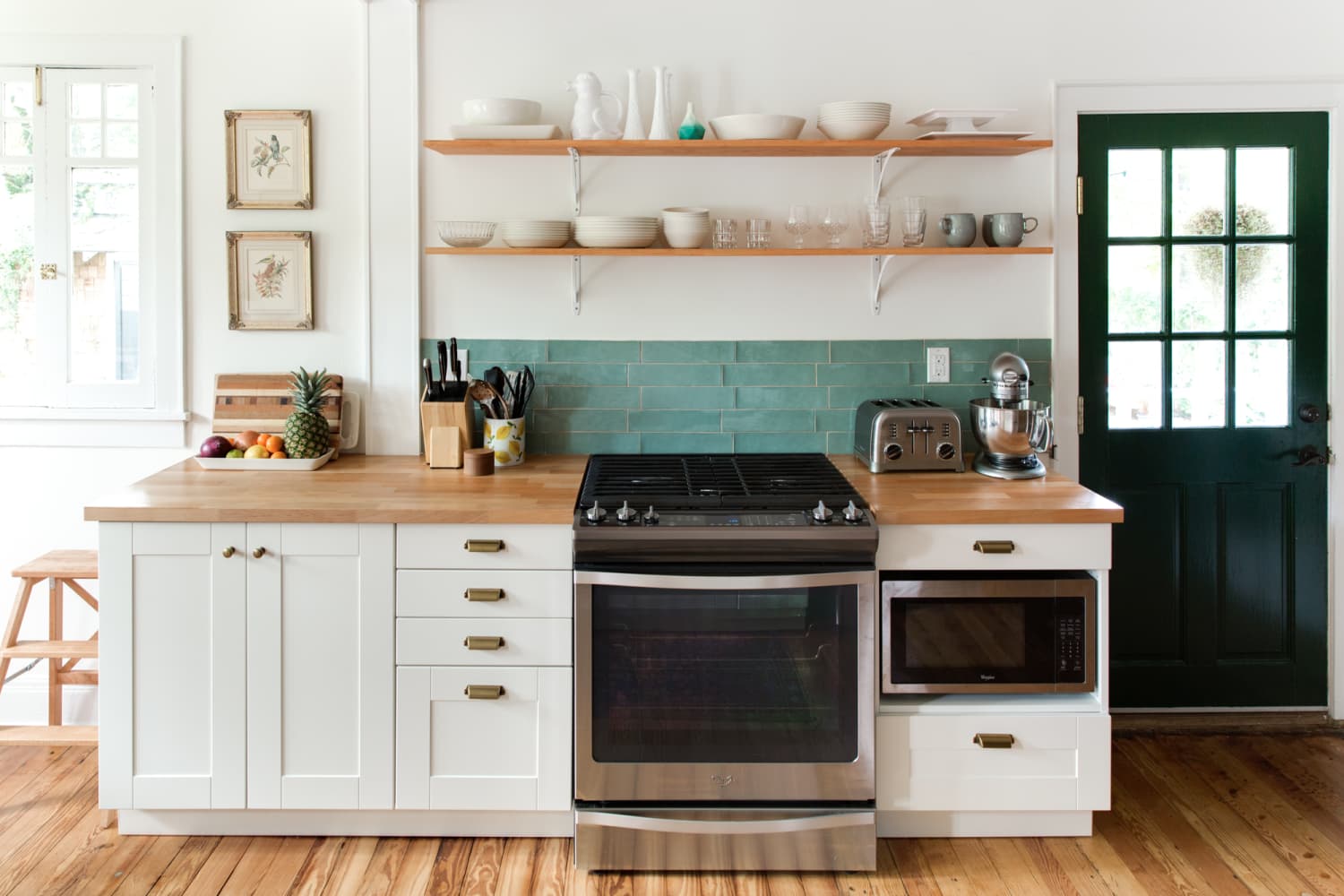
Credit: www.thekitchn.com
Comparing Kitchens With And Without Range Hoods
Having a range hood in your kitchen offers many benefits. It helps to remove smoke, steam, and odors. This keeps the air fresh and your kitchen clean. A range hood can also improve your kitchen’s style and value.
On the other hand, kitchens without a range hood face some drawbacks. Cooking smells may linger longer. Grease can build up on your walls and cabinets. This makes cleaning more difficult. Without proper ventilation, your kitchen can feel stuffy and uncomfortable.
Legal Requirements For Range Hoods
Building codes often require range hoods in kitchens. These codes help ensure safety and proper ventilation. Regulations may vary by location. Always check local laws before installation.
Safety considerations are crucial. A range hood removes smoke and odors. It also helps prevent grease buildup. This reduces fire risks in your home. A good range hood keeps the air clean and healthy.
| Factor | Importance |
|---|---|
| Ventilation | Reduces smoke and odors |
| Fire Safety | Minimizes grease buildup |
| Air Quality | Improves indoor health |
Alternatives To Traditional Range Hoods
Recirculating fans are a great choice for kitchens without vents. They filter air and send it back into the room. This option is often more affordable and easier to install. Many homeowners prefer them for their compact size and efficient design.
Microwave-hood combos combine two appliances into one. They save space and offer cooking flexibility. These units can vent outside or recirculate air. Most models have built-in fan settings to help reduce smoke and odors. This makes cooking more enjoyable and less messy.
Deciding If You Need A Range Hood
Consider your cooking habits. Do you cook often or use strong spices? A range hood can help keep your kitchen fresh. It removes smoke, steam, and odors quickly. If you fry foods or cook at high temperatures, a hood is even more important.
Next, think about your kitchen layout. Is your stove close to an open window? If yes, natural ventilation might help. If not, a range hood is needed. It should fit well with your kitchen design and size.
Evaluate your ceiling height too. Low ceilings may need a compact hood. High ceilings might allow for larger, more powerful options. Always choose a model that matches your needs.
Installation Considerations For Range Hoods
Choosing between professional and DIY installation for your range hood is important. A professional can ensure proper fit and functionality. They have the experience needed for complex setups. DIY installation can save money, but it requires skills and tools.
Cost factors play a big role in this decision. Professional installation may range from $100 to $500. This cost includes labor and materials. DIY costs are generally lower, focusing on material costs only. Always consider your budget and skill level before deciding.
| Installation Type | Cost Estimate | Skill Level Required |
|---|---|---|
| Professional | $100 – $500 | Low |
| DIY | Material Costs Only | Medium to High |
Maintenance And Upkeep Of Range Hoods
Regular cleaning of your range hood is essential for proper functioning. Use warm, soapy water to clean the exterior. For the filters, check every month. Replace them every three to six months. This keeps the air in your kitchen fresh.
Common issues include poor suction and strange noises. Clean or replace the filters to improve suction. Ensure the fan is running properly. If the hood is noisy, check for loose parts. Tighten any screws or bolts that may be loose.
Innovations In Range Hood Technology
Range hoods now come with smart features. These features include voice control and smartphone apps. You can easily adjust settings from anywhere. Some models even have auto-sensors that detect smoke.
Energy efficiency has also improved. New range hoods use LED lights instead of traditional bulbs. This saves electricity and lasts longer. Many models have a low-energy mode for quieter operation. These changes help save both money and the environment.

Credit: us.fotileglobal.com
Frequently Asked Questions
Do I Need A Range Hood In My Kitchen?
A range hood is not legally required in every kitchen. However, it is highly recommended for improving air quality. It helps eliminate smoke, odors, and grease from cooking. Without one, your kitchen may accumulate unwanted residues and smells. Consider your cooking habits when making this decision.
What Are The Benefits Of Using A Range Hood?
Using a range hood offers numerous benefits. It improves indoor air quality by removing harmful pollutants. It also reduces heat and moisture, making cooking more comfortable. Additionally, a range hood can enhance your kitchen’s aesthetics. Investing in one can lead to a cleaner cooking environment.
What Happens If I Don’t Have A Range Hood?
Without a range hood, cooking odors and smoke linger in your kitchen. This can lead to greasy surfaces and unpleasant smells. Your home’s air quality may decline, affecting health. Additionally, cooking residues can damage cabinetry over time. Consider alternative ventilation if a hood isn’t feasible.
Are There Alternatives To Range Hoods?
Yes, there are alternatives to traditional range hoods. Downdraft vents can be installed directly in the cooktop. Wall-mounted or under-cabinet fans are also options. Some homeowners opt for window exhaust fans for ventilation. Each alternative has its pros and cons, so choose based on your kitchen layout.
Conclusion
A range hood offers numerous benefits, from improving air quality to reducing odors. While it’s not mandatory in every kitchen, its advantages are hard to ignore. Investing in a range hood can enhance your cooking experience and maintain a cleaner home environment.
Consider your needs and make an informed choice.
